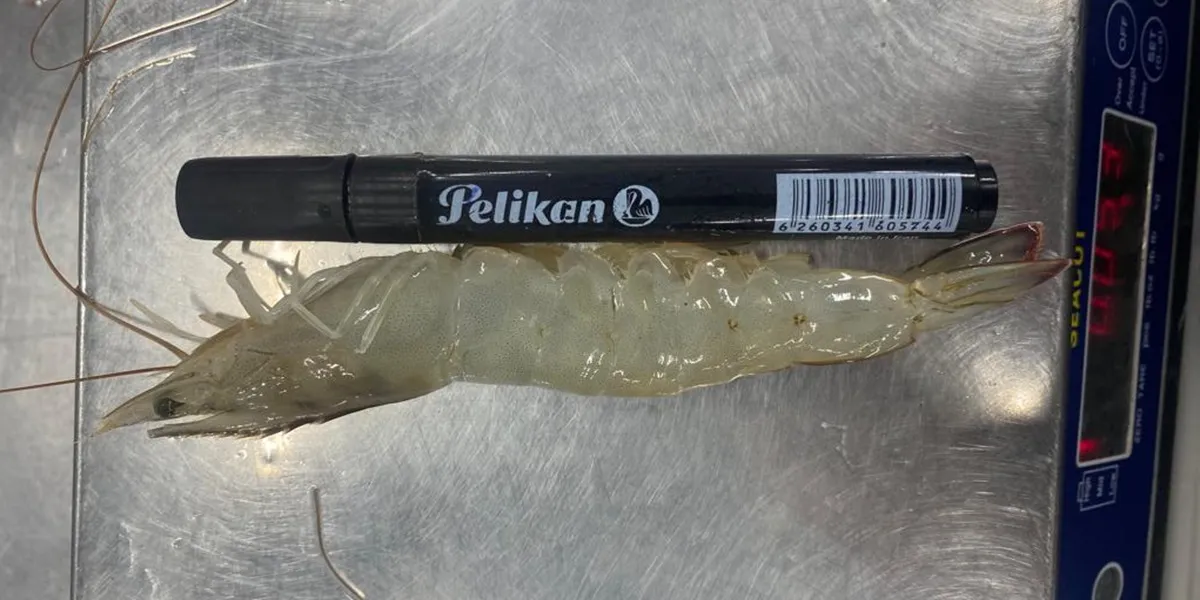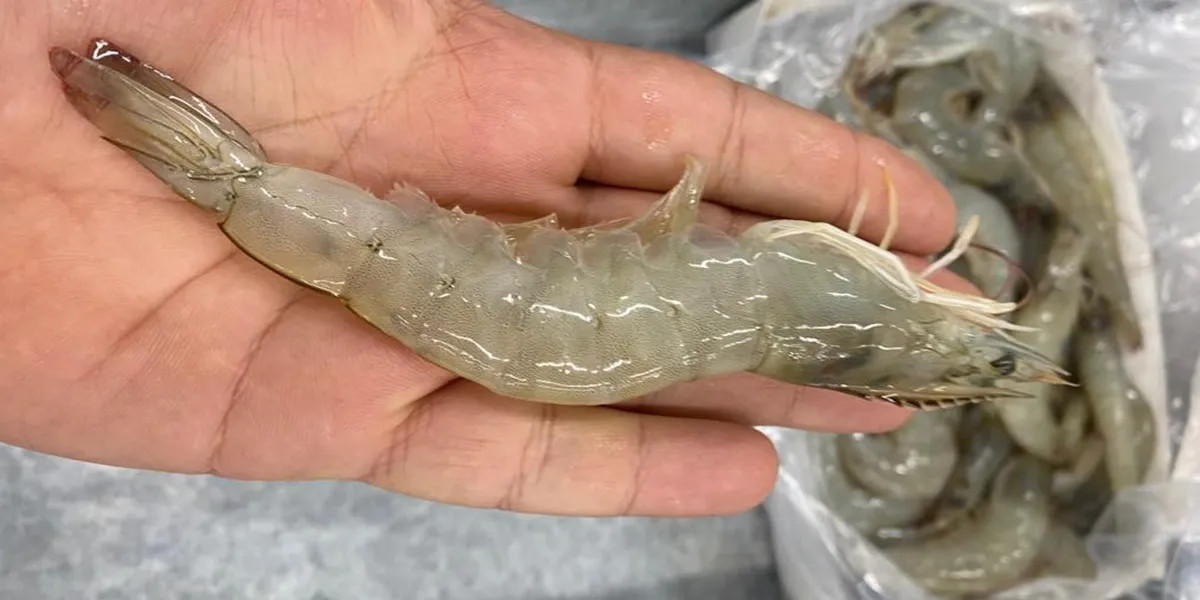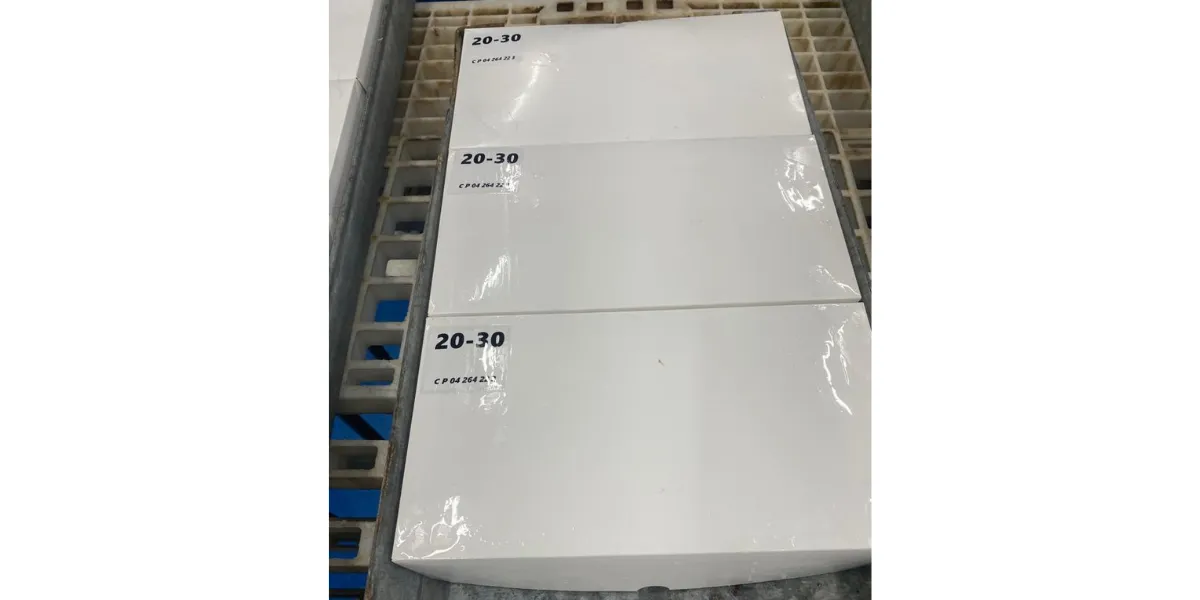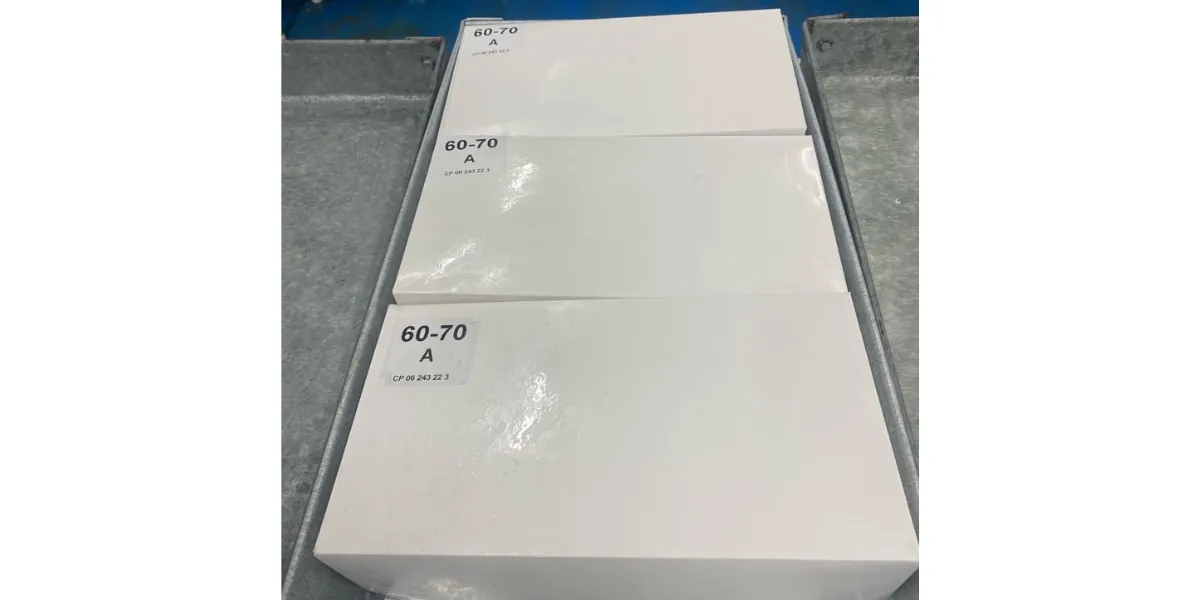Finding the right shrimp supplier isn’t just a business decision — it’s a strategic move that can define the success or failure of your seafood operations. Whether you’re sourcing for domestic distribution or international export, partnering with a reliable shrimp supplier ensures consistent quality, regulatory compliance, and long-term profitability. In a market where food safety standards are tightening and consumer expectations are rising, working with a supplier who understands traceability, cold chain logistics, and sustainable aquaculture is no longer optional — it’s essential.
From verifying certifications like HACCP and ASC to evaluating disease control protocols and delivery reliability, the process of choosing a trustworthy partner requires more than just comparing prices. It demands a structured, informed approach grounded in science, logistics, and real-world experience.
In this guide, we’ll walk you through everything you need to know to confidently select a reliable shrimp supplier in Iran — one that meets both international standards and your business goals. Let’s dive in.
Why Choosing a Trusted Shrimp Supplier Matters More Than You Think
In the seafood industry, the choice of supplier can make or break your business. A reliable shrimp supplier ensures not only consistent product quality but also compliance with health regulations, delivery timelines, and international standards. In Iran, companies like Pishva Holding have set benchmarks by integrating aquaculture expertise with export-grade logistics.
Working with a trusted supplier reduces risks such as:
- Microbial contamination
- Inconsistent sizing and grading
- Delayed shipments or customs issues
A reliable shrimp supplier also helps you maintain brand integrity. Whether you’re supplying restaurants or exporting to Europe, consistency in quality and documentation is essential. According to CIPS and Procurement Tactics, supplier reliability directly affects operational efficiency and customer satisfaction.
Checklist for evaluating supplier reliability:
| Criteria | Why It Matters |
| Certifications | Ensures food safety and export eligibility |
| Cold chain logistics | Maintains freshness during transport |
| Track record | Indicates consistency and professionalism |
Choosing wisely means choosing sustainably. Keep reading to learn how to assess shrimp quality like a pro.
Key Quality Indicators of Shrimp: What to Look For
When sourcing shrimp, visual inspection is just the beginning. A reliable shrimp supplier — especially one operating as an Iranian Shrimp Supplier & Wholesale — should offer products that meet both domestic and international quality benchmarks. Shrimpy Co., for example, emphasizes clean water sourcing from the Persian Gulf and strict hygiene protocols.
Key indicators of shrimp quality:
- Color: Fresh shrimp should have a translucent, slightly pink hue. Yellowing or black spots suggest spoilage.
- Texture: Firm and elastic to the touch. Mushy texture indicates degradation.
- Odor: Mild ocean scent. Strong ammonia smell is a red flag.
- Size grading: Uniform sizing reflects proper sorting and processing.
- Advanced suppliers also conduct:
- Microbiological testing for pathogens like Vibrio
- Chemical residue analysis for antibiotics or heavy metals
Iran’s shrimp farms increasingly adopt recirculating aquaculture systems (RAS) to control water quality and reduce disease risk. A reliable shrimp supplier will transparently share lab results and quality control procedures.
Understanding these indicators helps you avoid costly mistakes and build long-term partnerships. Next, let’s explore the certifications that matter.
Certifications That Signal Trust: What Your Supplier Should Have
Certifications are more than paperwork — they’re proof of credibility. A reliable shrimp supplier must hold internationally recognized certifications that validate their farming, processing, and export practices. These certifications also ensure the process of packaging and shipping shrimp meets global standards.
Essential certifications:
- HACCP (Hazard Analysis and Critical Control Points): Ensures food safety across production stages
- ASC (Aquaculture Stewardship Council): Focuses on environmental and social responsibility
- BAP (Best Aquaculture Practices): Covers farm, hatchery, feed mill, and processing plant standards
- Health Certificate & Certificate of Origin: Required for customs clearance and traceability
| Certification | Purpose | Required For |
| HACCP | Food safety | All markets |
| ASC | Sustainability | EU, US |
| BAP | Full-chain quality | Global retail |
| Health Certificate | Sanitary compliance | Export |
A reliable shrimp supplier will not only possess these documents but also renew and audit them regularly. Ask for sample certificates and verify them with issuing bodies. This step protects your business and ensures your shrimp meets retail and regulatory expectations.
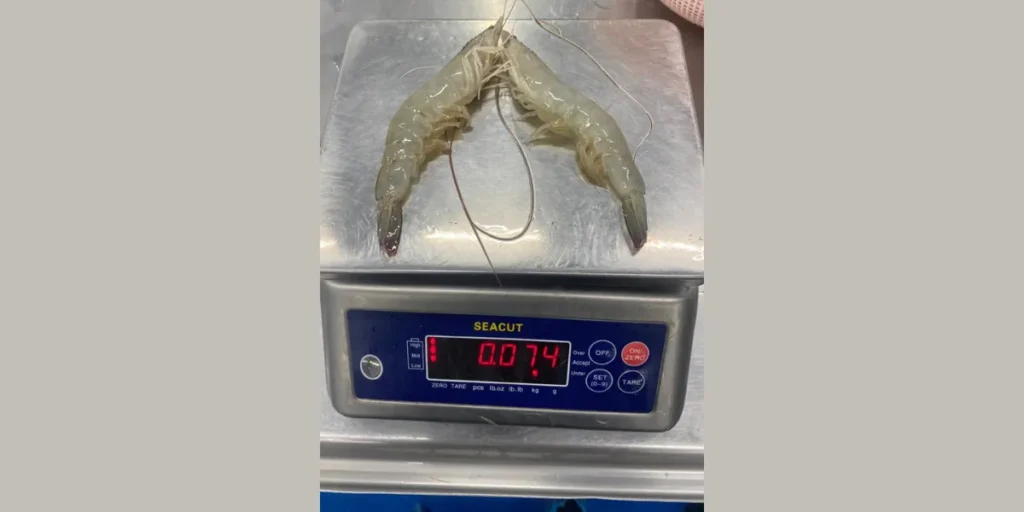
Evaluating Supplier Reputation: Experience, Clients, and Track Record
Reputation isn’t built overnight — it’s earned through consistent performance. A reliable shrimp supplier should have a proven history of delivering quality products, meeting deadlines, and maintaining transparency. According to FasterCapital and LinkedIn experts, supplier evaluation should include both qualitative and quantitative metrics.
How to assess supplier reputation:
- Years in operation: Longevity often signals stability
- Client portfolio: Look for partnerships with reputable brands or export markets
- Online reviews and testimonials: Scan for recurring issues or praise
- Third-party audits: Independent assessments of hygiene, logistics, and compliance
Quick evaluation checklist:
| Factor | What to Ask |
| Experience | How long have they been in business? |
| Clients | Who are their major buyers? |
| Track record | Any history of recalls or delays? |
| Transparency | Do they share lab results and certifications? |
A reliable shrimp supplier will welcome scrutiny and provide references. Don’t hesitate to request a facility tour or trial shipment. Trust is built on evidence, not promises.
Infrastructure and Processing Capabilities: From Farm to Freezer
Behind every reliable shrimp supplier is a robust infrastructure that supports hygiene, speed, and scalability. From harvesting to freezing, each step must preserve the shrimp’s texture, flavor, and safety. Iranian suppliers increasingly invest in automated processing lines and IQF (Individual Quick Freezing) technology.
Key infrastructure components:
- Modern farms: Use of biosecure ponds and water filtration
- Processing plants: Equipped with washing, grading, and freezing systems
- Cold storage: Maintains -18°C or lower for frozen shrimp
- Packaging units: Vacuum sealing and labeling for traceability
| Stage | Infrastructure Needed |
| Farming | Biosecure ponds, water monitoring |
| Processing | Sorting, blanching, IQF freezing |
| Packaging | Vacuum sealers, barcode systems |
| Logistics | Refrigerated trucks, export documentation |
A reliable shrimp supplier will offer transparency into their operations and allow buyers to inspect facilities. Ask about their daily processing capacity, downtime protocols, and equipment maintenance schedules. These details reveal whether they can scale with your business.
Transparent Pricing and Contracts: A Sign of Professionalism
In the seafood trade, transparency in pricing and contracts is a hallmark of a reliable shrimp supplier. It reflects not only professionalism but also a commitment to long-term partnerships. According to the World Wildlife Fund and Expana Markets, transparent pricing helps stabilize global shrimp supply chains and reduces disputes between buyers and exporters.
What to expect from a transparent supplier:
- Clear breakdown of costs (harvest, processing, packaging, logistics)
- Fixed pricing models or indexed rates tied to market benchmarks
- No hidden fees or vague clauses
Key contract elements to review:
| Clause | Why It Matters |
| Delivery terms (INCOTERMS) | Defines responsibility and risk |
| Quality guarantees | Protects against substandard batches |
| Penalty clauses | Ensures accountability for delays |
A reliable shrimp supplier will proactively share sample contracts and pricing structures. They’ll also be open to negotiation and customization based on your volume and destination. This level of clarity builds trust and reduces operational friction.
Disease Management and Biosecurity in Shrimp Farming
Disease outbreaks like EMS and WSSV have caused billions in losses globally. That’s why a reliable shrimp supplier must prioritize biosecurity and disease management. According to research published in Frontiers in Aquaculture and SpringerLink, effective biosecurity begins at the hatchery and extends through harvest.
Core biosecurity practices include:
- Use of SPF (Specific Pathogen Free) broodstock
- Water filtration and disinfection systems
- Controlled feeding and probiotic use
- Regular health screenings and lab diagnostics
Common diseases and prevention methods:
| Disease | Prevention Strategy |
| EMS (Early Mortality Syndrome) | Clean water, probiotics, early detection |
| WSSV (White Spot Syndrome Virus) | Genetic resistance, pond disinfection |
| Vibrio infections | Biosecure feed, water quality control |
A reliable shrimp supplier will document their health protocols and share lab reports upon request. They’ll also have contingency plans in place, such as quarantine zones and emergency harvest procedures. This proactive approach protects your supply chain from costly disruptions.
Cold Chain and Delivery Logistics: Keeping Shrimp Fresh
Maintaining product integrity from pond to plate depends on a robust cold chain. A reliable shrimp supplier invests in temperature-controlled logistics to ensure freshness, especially for frozen or chilled exports. According to Maersk and the FAO, cold chain failures are a leading cause of seafood spoilage.
Cold chain essentials:
- Immediate chilling post-harvest (0–4°C)
- IQF (Individual Quick Freezing) for export-grade shrimp
- GPS-tracked refrigerated trucks and containers
- Real-time temperature monitoring
Cold chain checkpoints:
| Stage | Temperature Range |
| Post-harvest chilling | 0–4°C |
| Freezing (IQF) | -18°C or lower |
| Transport | ≤ -18°C (frozen) or ≤ 4°C (chilled) |
A reliable shrimp supplier will provide cold chain logs and allow third-party audits. They’ll also use insulated packaging and backup power systems to prevent temperature excursions. This level of control ensures your shrimp arrives fresh, safe, and ready for market.
Legal and Customs Documentation: Avoiding Delays and Penalties
Exporting shrimp requires more than just quality — it demands airtight documentation. A reliable shrimp supplier understands the legal landscape and ensures all paperwork is accurate and timely. According to NOAA and Nghi Son Foods, missing or incorrect documents are a top cause of customs delays.
Essential export documents:
- Health Certificate (issued by veterinary authority)
- Certificate of Origin
- HACCP and ASC certifications
- Packing list and commercial invoice
- Export license and customs declaration
Document checklist:
| Document | Purpose |
| Health Certificate | Confirms sanitary compliance |
| Certificate of Origin | Verifies product origin for tariffs |
| HACCP/ASC | Ensures food safety and sustainability |
| Invoice & Packing List | Required for customs clearance |
A reliable shrimp supplier will have experience exporting to your target market and can guide you through the documentation process. They’ll also stay updated on changes in import regulations, helping you avoid costly penalties or shipment rejections.
How to Vet and Compare Shrimp Suppliers in Iran
Choosing the right partner in Iran’s growing shrimp industry requires a structured approach. A reliable shrimp supplier will stand out through transparency, infrastructure, and proven performance. Use this checklist to compare vendors side-by-side.
Supplier vetting checklist:
- Holds valid HACCP, ASC, or BAP certifications
- Offers transparent pricing and sample contracts
- Provides lab-tested shrimp with traceability
- Maintains cold chain from harvest to delivery
- Has experience with international exports
- Shares client references and audit reports
A reliable shrimp supplier in Iran — like Shrimpy Co. or Morvarid Sefid — will welcome due diligence. Don’t hesitate to request documentation, visit facilities, or ask for trial shipments. The right choice will save you time, money, and stress.
Conclusion Title: Why the Right Shrimp Supplier Is Your Competitive Edge
In today’s competitive seafood industry, choosing a reliable shrimp supplier is more than a procurement task — it’s a strategic investment in your brand’s reputation and operational stability. A dependable supplier doesn’t just deliver shrimp; they deliver consistency, safety, and peace of mind. From farm management practices to cold chain logistics, every detail matters when your customers expect nothing less than excellence.
What sets a reliable shrimp supplier apart is their commitment to transparency, certifications, and long-term partnerships. They understand that quality isn’t a one-time achievement — it’s a daily standard. Whether you’re a wholesaler, retailer, or exporter, aligning with a supplier who shares your values around sustainability, hygiene, and traceability gives you a clear edge in the market.
As you evaluate your options, don’t just look at price. Look at infrastructure, disease control, packaging standards, and delivery performance. Ask the right questions. Visit facilities if possible. And always verify documentation.
In the end, the right supplier becomes more than a vendor — they become a trusted extension of your business. Choose wisely, and you’ll build a supply chain that’s not only profitable but also resilient and future-ready.
FAQ
Q1: What makes a shrimp supplier “reliable”? A reliable shrimp supplier consistently delivers high-quality, certified shrimp, maintains cold chain logistics, and provides transparent contracts and documentation.
Q2: How can I verify a supplier’s certifications? Ask for digital copies of HACCP, ASC, or BAP certificates and verify them with the issuing organizations.
Q3: What’s the risk of choosing a cheaper, uncertified supplier? You risk receiving contaminated or low-grade shrimp, customs delays, and reputational damage.
Q4: How important is cold chain in shrimp logistics? Critical. Any break in the cold chain can lead to spoilage, bacterial growth, and product rejection.
Q5: Can Iranian shrimp suppliers export to Europe or Asia? Yes. Many Iranian suppliers are certified and experienced in exporting to EU, GCC, and East Asian markets.

